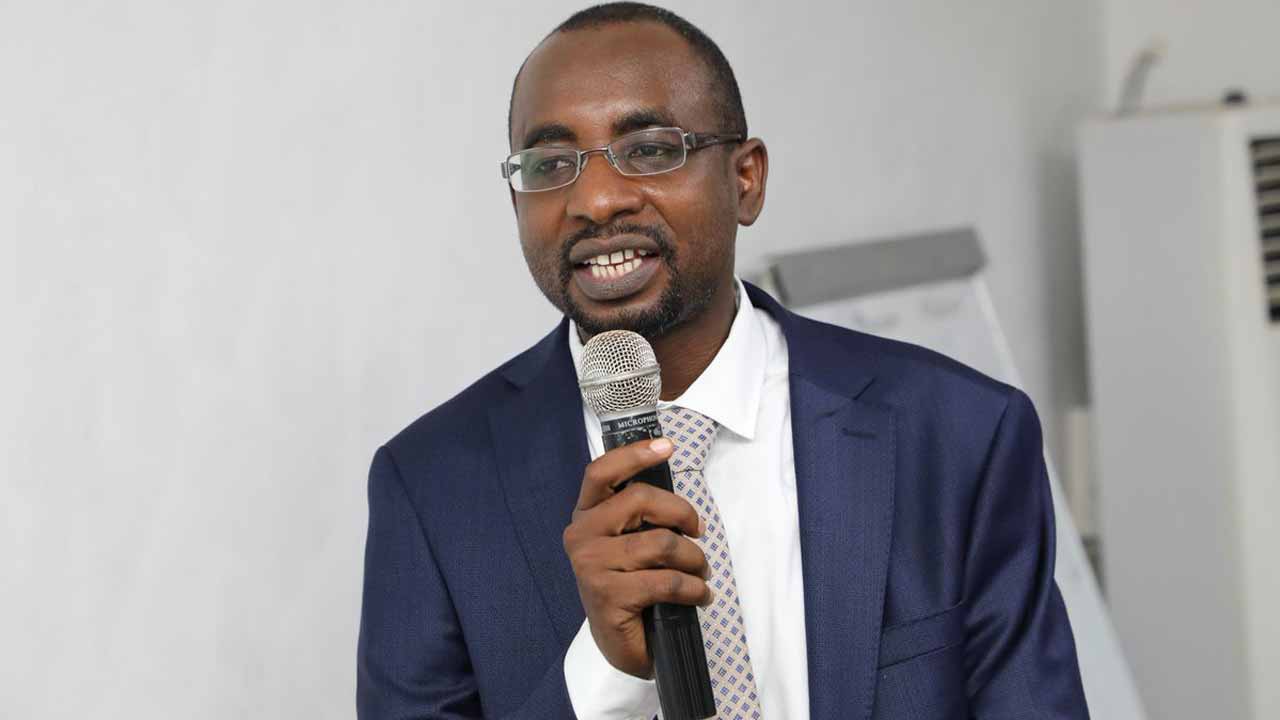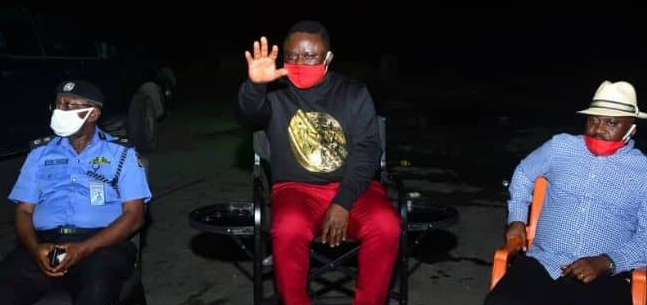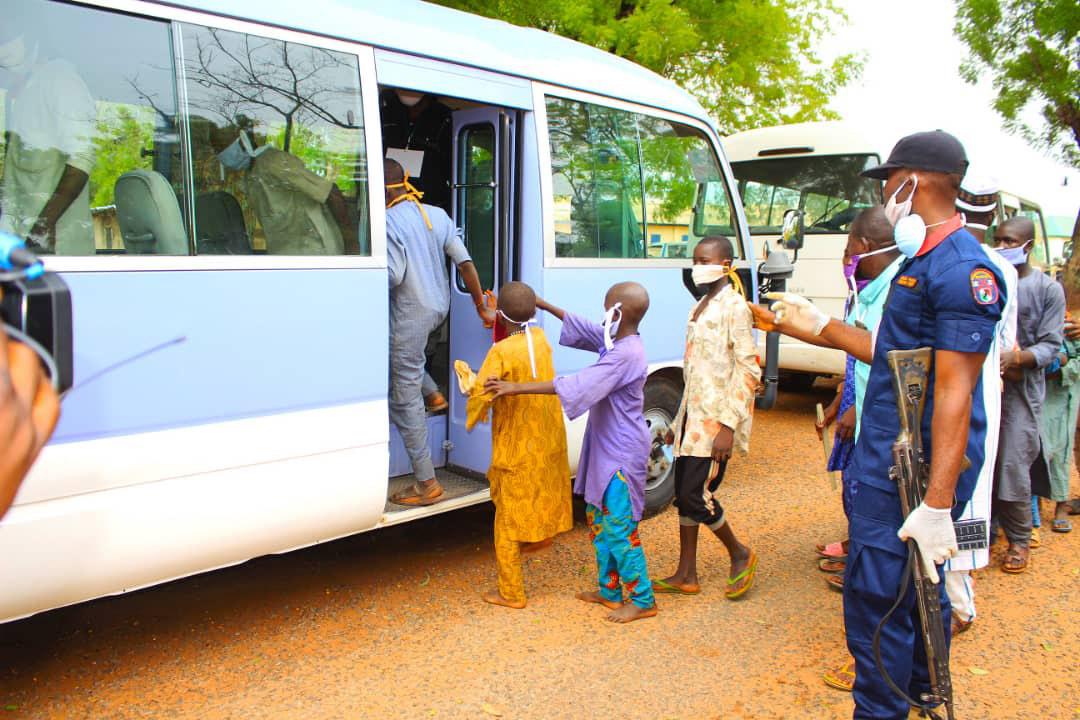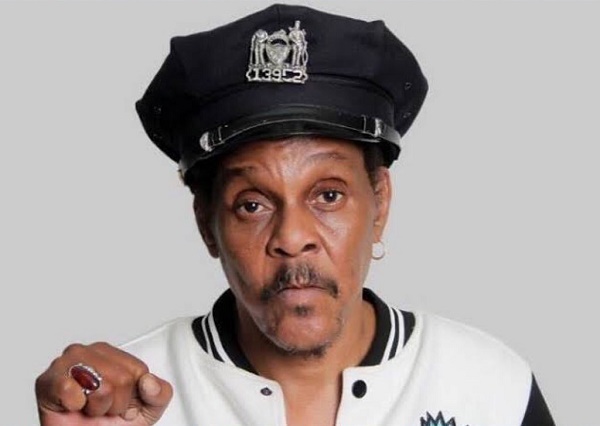RCCG breaks silence on rape, murder of UNIBEN student in parish
Far too many things break the heart about Nigeria. There is the grinding poverty that robs citizens of dignity; pervasive insecurity, which has turned nearly everyone into jittery refugees in their own country and the combination of many other factors gradually taking humanity away from Nigerians. That, which has stifled fellow feeling, made enemies of compatriots and completely devalued life. This last week presented snippets of all these and more.
There was the tragic death of Vera Omozuwa, a 22-year-old student of the University of Benin. Vera, popularly called Uwa, like the tragic hero in Arthur Miller’s play, Death of a Salesman, and the essay, Tragedy of the Common Man, met her death in her quest for knowledge, which should ultimately put her in the rightful position in society.
That a student would leave her home to study in a church is indicative of a measure of dedication that is not common in today’s university students. The choice itself may have been precipitated by one of Nigeria’s most lasting shames of failed public utilities. Were her parents’ home a conducive accommodation with proper electricity, the young lady might have had no reason stepping out of the safety of that home into the lonely auditorium where she met her untimely and brutal end.
But the place was, ordinarily not a bad option. Aside from the possibly superstitious appeal of divine inspiration and understanding that may make studying in a church attractive, the church should also be one of the safest places anyone could be at any time. This is why it is called a sanctuary, a place of safety and refuge from pursuit, persecution or danger. Not too long ago in Nigeria, no one, even if they didn’t share the faith, would dare commit any atrocity near a place of worship, but that is history. That some devils would attack a helpless girl in a sanctuary, rape and inflict fatal injuries on her shows how much the country has sunk into the abyss. Nigeria is now an open jungle, no place of refuge for anyone, rich or poor.
Advertisement
Hundreds of kilometres away in Lagos, another young life was cut down by bullets from the guns of policemen. That incident, which terminated the dream of 16-year-old Tina Ezekwe, again exposed some other demons holding Nigeria by the jugular.
Although Tina was a secondary school pupil with hopes for a school certificate, she was shot in her mother’s stall where she helped. Now, but for poverty, she would probably have no business where she met her death. She most likely would be tucked in her parents’ home studying. But Nigeria is an enclave where child labour is a constant means of livelihood for families; the girl had properly done this most of her life!
The policeman who shot Tina is a product of corruption. The problem starts from the mode of recruitment and their motive for joining the police. These men, if not illiterates, (given the ranks they seem to have attained), were most likely frustrated and drunk, resultantly seeing the gun as an instrument of extortion and oppression, rather than protection of the common man. Without prejudice to the efforts of the Inspector-General of Police, Mohammed Adamu, the Nigeria Police is still largely an undisciplined lot with incredible levels of distrust and inefficiencies.
Advertisement
Consider for instance, that the office of the IGP will have to “take over” investigations of Uwa’s case in Benin. Is that indicative of the inefficiency of the state police apparatus or meant to boost the psyche of the victim’s parents about the seriousness of the police as regards the case? The point here is that there is no reason every state command should not have the complement of equipment and personnel needed to crack incidents like this. But that is a matter for another day as the violation of another underage girl in the northwestern state of Jigawa hit the news over the weekend.
In the case of this 12-year-old girl, reports showed that 11 men might have molested her for long. And amongst those already arrested in connection with this matter is a 57-year-old man! So, there you have it: grandfathers, who should lay the right precepts for the youth, are culprits in these abominable acts. But that is the thing about rape, which has now taken epidemic proportions in Nigeria. There is no one too old, young or close for suspicion although these factors make people, parents and ladies, lower their guard and become more vulnerable.
This is why families have a lot to do about cutting rape from its root. Parents must start to expose their children to the evil that rape is. Boys should realise that there is nothing manly, nothing to be proud of in forcing a girl into a sexual relationship. They should know that there can never be an excuse for rape, not what clothes the girl has worn or refused to wear.
Arguments situating rape in the increased rate at which girls wear skimpy attire beg the issue. Even if a girl chooses to walk naked on the streets, she owns her body and as long you do not have her consent, touching her is a violation. In any case, why do those who promote these arguments not get tempted and rape mentally ill women who walk on the streets stark naked? Every male in this country must realise that there is nothing macho about forcing anything, let alone sex, on anyone. It, in fact, is not just criminal, it is despicable and cowardly.
Advertisement
We then need to call this evil what it is and stop the equally terrible temptation of stigmatisation, which invariably imposes silence on victims and their families. This silence perpetrates rape in two ways. It gives the male a sense of invincibility and makes them to think it is okay to force girls since no one would talk about it. And worse of all, it makes girls, who are victims, to see rape as the least of the evils that could happen if they ever shared the story with anyone outside their support system. In this society, the luck to be married irrespective of the misfortune attending it is worshipped and so anything that diminishes the prospect that a man would seek the hand of a girl in marriage, including exposing people who may have taken advantage of her, is avoided.
But Nigeria can do far better. There should be a deliberate system to lead everyone who claims to have been raped to get proper counselling and justice.
The authorities must be deliberate about encouraging Nigerians to stop the stigmatisation of victims, encourage more people to speak about their experiences and bring those who commit the crime to justice.
Then, there is the vexed issue of justice; the authorities need to do better by the people on this front. Truly, between the Criminal Code, the Penal Code and the Child Rights Act, Nigerian statues provide copious punishments ranging from 12 years to life imprisonment for convicts of rape, but how often are convictions secured?
And this is the point that has to be taken more seriously. As calls for the strengthening of laws punishing rape increase, there is the more important need of reviewing the provisions concerning successfully prosecuting the crime.
At the moment, ingredients of the offence that must be proved include, the actual occurrence of sexual intercourse with the woman; that the sexual act was without consent or that the consent was obtained by fraud, force or intimidation, deceit or impersonation; that the woman was not the wife of the accused; that the accused had the mens rea, the intention to have sexual intercourse with the woman without her consent or that the accused acted recklessly not caring whether the woman consented or not and that there was penetration.
In addition, some of these ingredients presuppose the need for corroboration as decided in Iko V. State (2001) 14 NWLR(PT.732)195(2001) 7 S.C(PT.11) 115. And this requirement is not satisfied by an early report of the crime. This, to my mind, is where the trouble for securing justice for a majority of rape victims in Nigeria is. While it is important to see that no one is convicted on the basis of false accusations, it is important that the law ensure a balance so that victims who speak up do not suffer double jeopardy.
Advertisement
There is also the urgent need to re-evaluate our values as a nation. The fury and forget approach to violence against vulnerable groups tend to damage victims permanently, ultimately diminishing our humanity and entrenching evil as a way of life.
Adedokun tweets @niranadedokun
Advertisement
Views expressed by contributors are strictly personal and not of TheCable.







